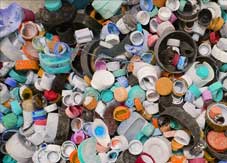Global drive to curb marine litter surges on; Industry participation up 165%

In a not so distant future, the world can once again enjoy pristine and litter-free oceans and waterways. For some, this is merely a mirage. But for plastic industry leaders across the globe who publicly committed to bring solutions to marine litter problem, the realisation to this goal is in sight.
The United Nations Environment Programme(UNEP) stated that marine litter build-upsare perpetuated by discarding, disposing or abandoning manufactured or solid waste materials in the marine and coastal environment. Marine litter consists of items that have been made or used by people and deliberately dumped into the sea or rivers or on beaches; brought indirectly to the sea with rivers, sewage, storm water or winds; or accidentally lost, including material lost at sea in bad weather.
While marine litter comes from many sources, plastics are considered the blot in the landscape, so to speak, given their slow rate of degradation.
The problem of marine litter has run unabated because implementation and enforcement of existing regulations and standards are deficient , combined with a lack of awareness among main stakeholders and the general public, UNEP stated, adding that marine litter is part of the broader problem of waste management, which is becoming a major public health and environmental concern in many countries.
The Declaration of the Global Plastics Associations for Solutions on Marine Litter(Global Declaration), unveiledin 2011 Marchat the 5th International Marine Debris Conference held in Hawaii, speaks of the concerted efforts among global industry organisations that are devising projectsfocusing on six key areas, namely, education, research, public policy, sharing best practices, plastics recycling/recovery, and plastic pellet containment, to avert the marine litter problem. Since then, participation from the global plastics industry expands. The initial voluntary signatories of 47 members from 27 countries that enforced a hundred projects had grown to 60 plastics organisations in 34 countries in 2013, and which were able to push through and completed more than 185 marine litter solutions projects. Last year, membership rose to 60 from 34 countries, and some 260 projects came into fruition. The trajectory of the activities grew by more than 165% since the debut of the Global Declaration in 2011.
Callum Chen from the Asia Plastics Forum, commented: “As a united global industry, we’ve come a long way from where we started in 2011, Today we have active marine litter prevention programs occurring in all regions of the globe and we are continually pursuing opportunities to grow our work.”
“We’re very pleased with the continued growth in the work we’re doing on marine litter,” said Steve Russell, Vice President of plastics for the American Chemistry Council (ACC).
“Marine litter is a complex environmental challenge that requires joint efforts at the local, regional and global level”, said Karl-H. Foerster, Executive Director of PlasticsEurope, a leading European trade association. “We look forward to continue developing and executing programs that address marine litter, and work with governments, non-governmental organisations, researchers, and other stakeholders. It is critical that we have these partnerships and continue to bring additional stakeholders to the table to tackle this very serious issue.”
“Whilst the majority of consumers act responsibly, a minority who do not use or dispose of their plastic products appropriately, causing negative impacts such as litter,” said Dr Abdulwahab Al-Sadoun, Secretary-General, Gulf Petrochemicals and Chemicals Association (GPCA), which represents the downstream hydrocarbon industry in the Arabian Gulf. “That’s why raising awareness about proper waste management and recycling is so important to us.”
This progress achieved by Global Declaration over the five years since its launch, and details of some of the projects are highlighted at the second United Nations Environment Assembly (UNEA) held 23-27 May at Kenya.
(PRA)Copyright (c) 2016 www.plasticsandrubberasia.com. All rights reserved.












































